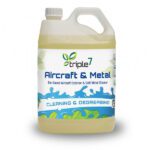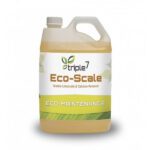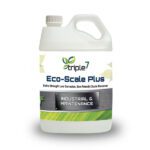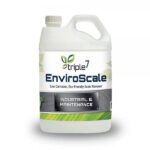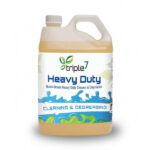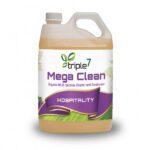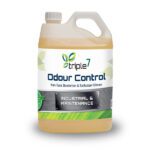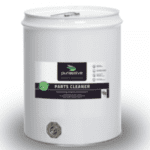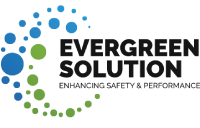Organic cleaners have gained a lot of popularity in recent years, especially with the increasing awareness of the impact of chemicals on our health and the environment. While there are many benefits to using organic cleaners, there are also some challenges and misconceptions that can make them less attractive to industrial buyers. In this blog post, we will explore five key points about organic cleaners and what they mean for the industry.
Organic cleaners are without perfumes, foaming agents, and coloring agents. This means that they are free of unnecessary additives that can cause irritation or harm to humans and animals. Perfumes and coloring agents, in particular, can contain a range of chemicals that are known to be harmful to health and the environment. For example, synthetic fragrances can contain phthalates, which have been linked to reproductive and developmental issues. By avoiding these additives, organic cleaners provide a safer and more natural alternative to traditional chemical cleaners.
Organic cleaners come with standards and approvals that may not be familiar to industrial buyers. Unlike traditional chemical cleaners, which are often regulated by government bodies such as the Environmental Protection Agency (EPA), organic cleaners may be certified by independent organizations that are not as well-known. For example, some organic cleaners may be certified by organizations such as Green Seal or the Soil Association. While these certifications may not be as widely recognized, they are still important indicators of the quality and safety of organic cleaners.
Organic cleaners compete against chemicals that can be treated by effluent treatment plants. Many industrial buyers may assume that traditional chemical cleaners are more environmentally friendly because they can be treated by effluent treatment plants. While it is true that these plants can remove some chemicals from wastewater, they are not always effective at removing all of the harmful substances that are present in chemical cleaners. Organic cleaners, on the other hand, are designed to be biodegradable and non-toxic, meaning that they are less likely to cause harm to the environment even if they are not treated by effluent treatment plants.
The health benefits of organic cleaners are not fully understood and appreciated. While it is clear that organic cleaners are safer for humans and animals, there is still a lack of awareness about the specific health benefits that they provide. For example, some organic cleaners may contain essential oils that have antibacterial or antifungal properties, which can help to improve indoor air quality and reduce the risk of infection. By using organic cleaners, industrial buyers can provide a healthier and safer environment for their employees and customers.
It is true that organic cleaners may take longer to clean compared to chemical products. This is because they are designed to work in a different way, using natural ingredients and processes that are gentler on surfaces and materials. While this may be seen as a disadvantage by some industrial buyers, it is important to remember that the benefits of organic cleaners far outweigh the slightly longer cleaning times. By using organic cleaners, industrial buyers can reduce their environmental impact, improve the health and safety of their workplaces, and support sustainable and ethical manufacturing practices.
Suspicion of Natural products and its ingredients: With a claim being made by most companies of the organic nature of the ingredients of their cleaning products., its natural that most users would be skeptical of the factual details. This suspicion would be the biggest stumbling block in the acceptability and use of the range of cleaning products.
True organic Cleaning products have maximum commercial disadvantages, yet are the safest for the people due to the compatibility of the cleaners with all kinds of surfaces. Their global compliances , efficiency and lower cost of ownership , ease in disposal and safety are reasons why we should consider using in the range of domestic and industrial applications.
Conclusion
Organic cleaners offer a range of benefits to industrial buyers, including improved health and safety, reduced environmental impact, and support for sustainable and ethical manufacturing practices. While there are some challenges and misconceptions associated with organic cleaners, these can be addressed by educating industrial buyers about the specific benefits of these products and the importance of using natural and non-toxic ingredients. By making the switch to organic cleaners, industrial buyers can not only improve their own operations but also contribute to a healthier and more sustainable future for everyone.









